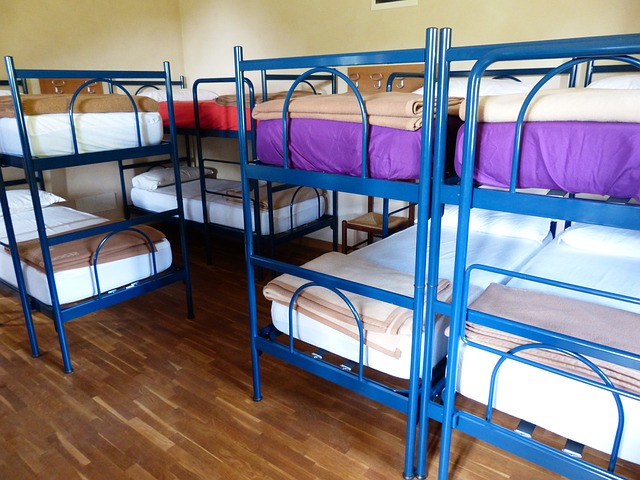
Future of Hostels
CoVid has hit the travel industry hard. Hostels have needed to adapt in even more ways.
Noisy common areas, backed-up laundry rooms, and the late-night talks with strangers from other parts of the world. No, it’s not dorm life, it’s all part of the culture of hostels and budget travel.
I have always been a fan of hostels. I found them a great way to meet new people and save a lot of money while traveling. Especially, when I was traveling alone, they were a good way to keep me connected to where I was and combat the feelings of homesickness.
I was never really part of the hostel party crowd. I was older and partnered when I started traveling many years ago. Partying was never a big deal to me anyway.
Hostels were more about saving money and connecting. But a lot has changed over the years.
With online services like hotel.com or booking.com, you can find quite a lot of cheap rooms these days. And if you are actually traveling with a partner or a small group of people, it actually became cheaper in some places to book a hotel instead of a hostel.
With the pandemic of CoVid-19, traveling in pods and avoiding exposure has become really important.
There has been a fear that this might end hosteling as we know it. But the truth is that hostels have been changing and evolving since the decade before CoVid hit.
Like the rest of the travel industry, hostels have been hit hard with the CoVid-19 pandemic and lockdowns. But it is especially true for hostels, that have a long history of communal shared spaces.
Even before 2020 hit us like a random bus in a horror movie, hostel culture was already changing. The rise of boutique hostels, ones that focus on design, vibe, and amenities, started to shed the gritty dorm-style reputation of hostels.
A few larger hostel chains have even dropped hostel from their names, like Generator. More and more, many are starting to sell themselves as “social hotels”
It’s not that hostels are going to disappear, they are still the go-to for independent, solo travelers. A place to meet new people and exchange stories. Finding people and like-minded folks can be easy online, but the physical face-to-face contact is still in our shared cultural experience.
Many more hostels are offering smaller private rooms. But the changes, lead to the question. When does the hostel really just become a hotel? But these changes have been going on for 20 years.
Change in the hostel traveler
The people most likely to stay at the hostel are backpackers. Those travelers that would spend a few weeks or more traveling on a budget.
Once it was that the hostel was a place to crash. According to a survey done by the Hostelworld Group, earlier generations of backpacking hostelers tended to get off the beaten path and were more explorers. The newer generation of backpackers want to be more connected and are very tech-savvy.
Rather than getting lost, younger travelers want to experience one or two places in a trip for longer periods of time. This usually means larger, busier locations that are closer to easy transportation. There is still the subset, thankfully, of younger travelers looking to get off the common backpacking routes. But looking at accommodations, which travelers are booking in say South America, more of it tends to be private rooms with a lot of shared social amenities.
The trend before this was moving away from the traditional dorm-style rooms and to smaller suites. Many larger hostels had more private rooms than dorm rooms. The taste was also changing. Hostel customers were demanding more style and ‘vibes’ beyond the jam-packed dorm room.
Fewer hostellers were booking based on cheap prices and more looking for experience. Instagram and travel influencers were pushing expectations beyond what older travelers viewed as the purpose of hostels.
As a result, prices for private rooms increased to the level of a cheap hotel. Sometimes even more in places.
What social distancing means for hostels
Like hotels, hostels that have been able to reopen have needed to make quite a few changes. Already many of the hostels went to online reservation systems. More travelers plan trips than just hop from place to place.
Gone are a lot of the breakfast services. I really miss the waffle makers. Bars tend to be closed or limited. (Of all things, closing bars would seem to be the best way to slow the spread of CoVid, In my opinion at least.) Some have also only rented out dorm-style rooms to travelers going in groups, aka travel pods.
At the end of it all, hostels will still be part of the backpacking and travel landscape. They certainly won’t be the flops that our parents had.
But with the tourism and travel industry still in turmoil, and for the foreseeable future will be, both hostels and hotels are caught in a bind.